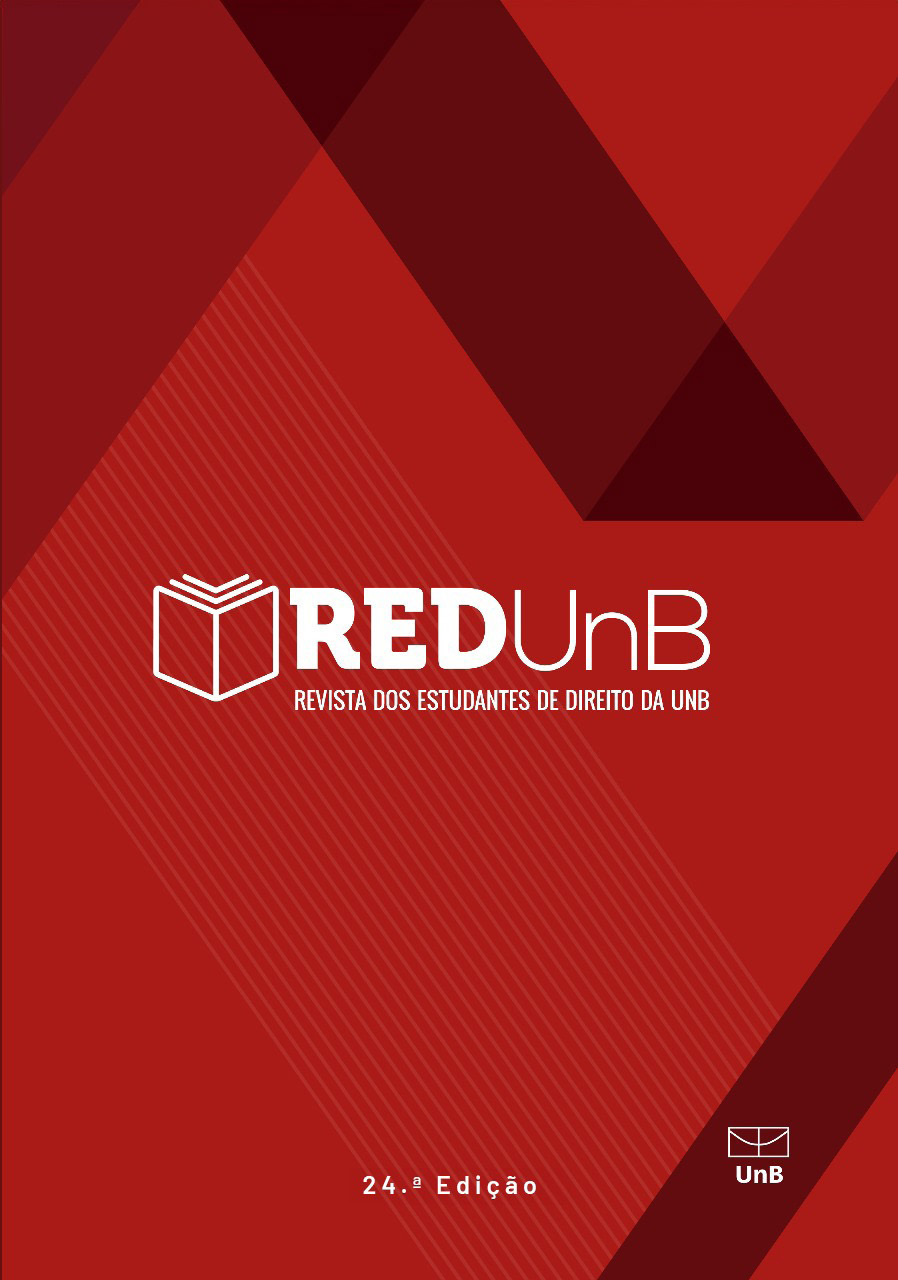THE ROLE OF HISTORICAL CLAIMS FOR THE EXERCISE OF SOVEREIGNTY UNDER GEOSTATIONARY ORBITS IN THE BUILDING OF A MORE EQUITABLE LEGISLATION TO SPACE ACCESS.
Keywords:
Space Law, geostationary orbits, sovereignty, neoinstitucionalism, International Telecommunications UnionAbstract
The growing pursuit of profitable space exploration has contributed to the occupation of geostationary bands of Earth’s orbit, particularly by the telecommunications system. However, this exploration has been occurring unevenly between countries with greater purchasing power and those with lower technological development in the aerospace field. This imbalance has led to a reaction from equatorial countries, aiming to claim sovereignty and rights over the geostationary region, given the increasing monopolization of the region by the few countries possessing aerospace technology. In this context, this article seeks to expose the reasons behind the legal claim of sovereignty by equatorial countries and the legislative consequences of this claim, in order to analyze the historical change in institutional behavior within Space Law. To this end, it employs the theoretical framework of neo-institutionalism developed by Douglass North, Hall, and Taylor to investigate the reconfiguration of legislation for access to geostationary orbits based on the behavior of informal and formal institutions. As a result, it is noted that, although the mechanisms of sovereignty claims have not been fully substantiated due to the absence of judicial effectiveness and capacity, they were responsible for pressuring for more just and equitable regulation, mainly within the scope of the International Telecommunication Union, with the aim of ensuring the right of access and use for countries that do not yet possess the necessary technological and economic arsenal. Furthermore, it is observed that there are three phases of historical neoinstitutional behavior in the legal relationship with geostationary orbits, namely, centripetal occupation, historical disruption, and formal equity.
Downloads
References
AGAMA, F. O. Effects of the Bogota Declaration on the legal status of geostationary orbit in international space law. Nnamdi Azikiwe University Journal of International Law and Jurisprudence, v. 8, n. 1, p. 24-34, 2017.
ASAMBLEA CONSTITUYENTE. Constitución de la República del Ecuador. Disponível em: https://www.wipo.int/edocs/lexdocs/laws/es/ec/ec030es.pdf. Acesso em: 07 maio 2021.
BALSECA VACA, A. F.. Los derechos espaciales del Ecuador en el marco de los tratados de uso del espacio ultraterrestre. Trabalho de Conclusão de Curso - Pontificia Universidad Católica del Ecuador. 2015.
BITTENCOURT NETO, O. de O. Limite vertical à soberania dos Estados: fronteira entre espaço aéreo e ultraterrestre. 2018. Tese de Doutorado. Universidade de São Paulo.
CHENG, B. Studies on International Space Law. Oxford, Inglaterra: Clarendon PR, 1998.
DA SILVA, L. G. M. et al. O (Re)Desenho Institucional do Pacto Federativo Diante da Covid- 19: Arranjos Institucionais no Contexto da MP 926/2020. Direito Público, v. 17, n. 96, 2020.
HALL, P. A.; TAYLOR, R. C. R. As três versões do neo-institucionalismo. Lua Nova: revista de cultura e política, n. 58, p. 193-223, 2003.
INTERNATIONAL TELECOMMUNICATION UNION. Membership. Disponível em: https://www.itu.int/en/myitu/membership. Acesso em: 30 jul. 2021.
JAPAN AEROSPACE EXPLORATION AGENCY. Declaration of the First Meeting of Equatorial Countries. 1976. Disponível em: https://www.jaxa.jp/library/space_law/chapter_2/2-2-1-2_e.html. Acesso em: 03 maio 2021.
JELLINEK, G. Teoría General del Estado. México: FCE, 2000.
JERVES GARCÍA, D. Derechos del Ecuador en la órbita geoestacionaria y en la Antartida. Trabalho de Conclusão de Curso - Universidad del Azuay. 2011.
KEALOTSWE, I. Do the principles of the ITU realize the outer space treaty’s concept of equity?. Tese de Doutorado - University of Pretoria. 2014.
LA REPUBLICA DE COLOMBIA. Constitucion Politica de Colombia 1991. Disponível em: https://pdba.georgetown.edu/Constitutions/Colombia/colombia91.pdf. Acesso em: 07 maio 2021.
MONSERRAT FILHO, J. Introdução ao Direito Espacial, Sociedade Brasileira de Direito Aeroespacial. Rio de Janeiro, 1998.
MOTA, F. A. S.; HINCKEL, J. N. Estudo do desempenho dos diferentes sistemas propulsivos para a transferência de um satélite para uma órbita geoestacionária. Proceeding Series of the Brazilian Society of Computational and Applied Mathematics, v. 1, n. 1, 2013.
NÓBREGA, F. F. B. Entre o Brasil formal e o Brasil real: Ministério Público no Brasil, instituição para o fortalecimento do Estado de Direito?. 2007. Dissertação de Mestrado. Universidade Federal de Pernambuco.
NÓBREGA, F. F. B. Teoria Política e do Estado: Livro Texto. 1. Ed. Recife. UFPE, 2018.
NORTH, D. Institutions, Institutional Change and Economic performance. 22. ed. New York: Cambridge University Press, 2006.
ORTIZ, J. A. B. (2008). A survey of Colombia’s new outer space policy: Reforms in Colombian law. Acta Astronautica, n. 63, p. 560–563.
SANTANA, D. N.; LIENDO, L. J. Relações internacionais e Direito Espacial no século xxi: mudanças normativas e institucionais em fase de incubação. Instituto de Pesquisa de Relações internacionais, v. 3, n. 6, 2017.
SCHROEDER, W. J.; AVELLA, G. J. LA ORBITA GEOESTACIONARIA: UNA REIVINDICACION DESDE LA CONSTITUCION POL. Pensamiento Jurídico, n. 15, 2002.
SHAW, M. N. International Law. Cambridge, Inglaterra: Cambridge University Press, 2003.
UNION OF CONCERNED SCIENTISTS . UCS Satellite Database. Disponível em: https://www.ucsusa.org/resources/satellite-database#:~:text=Assembled%20by%20experts%20at%20the,currently%20in%20orbit%20around%20Earth. Acesso em: 01 maio 2022.
TARJANNE, P. The Cooperative Uses of Satellite Orbital Slots. Via Satellite, 1993.
TRATADO sobre Exploração e Uso do Espaço Cósmico. 17 de abril de 1969. Disponível em: http://www.planalto.gov.br/ccivil_03/decreto/1950-1969/D64362.html. Acesso em: 02 de maio de 2022.
UNITED NATIONS ORGANIZATION. Permanent sovereignty over natural resources of developing countries and expansion of domestic sources of accumulation for economic development. 1970. Disponível em: https://digitallibrary.un.org/record/201876?ln=en. Acesso em: 03 maio 2021.
UNITED NATIONS ORGANIZATION. UNITED NATIONS GENERAL ASSEMBLY RESOLUTION 3281 (XXIX): CHARTER OF ECONOMIC RIGHTS AND DUTIES OF STATES. 1974. Disponível em: https://investmentpolicy.unctad.org/international-investment-agreements/treaty-files/2778/download. Acesso em: 04 maio 2021.
UNITED NATIONS OFFICE FOR OUTER SPACE AFFAIRS. Report of the second United Nations Conference on the exploration and peaceful uses of outer space. Disponível em: https://www.unoosa.org/res/oosadoc/data/documents/1982/aconf/aconf_10110_0_
html/A_CONF101_10E.pdf. Acesso em: 02 jun. 2021.
U.S DEPARTMENT STATE (org.). Treaty on Principles Governing the Activities of States in the Exploration and Use of Outer Space, Including the Moon and Other Celestial Bodies. Disponível em: https://2009-2017.state.gov/t/isn/5181.htm. Acesso em: 06 maio
VELÁZQUEZ ELIZARRARÁS, J. C. El derecho del espacio ultraterrestre en tiempos decisivos: ¿estatalidad, monopolización o universalidad?. Anuario Mexicano de Derecho Internacional, v. XIII, p. 583 ‑638, 2013.
VON DER DUNK, F. (Ed.). Handbook of space law. Edward Elgar Publishing, Cheltenham, Northampton, 2015.


